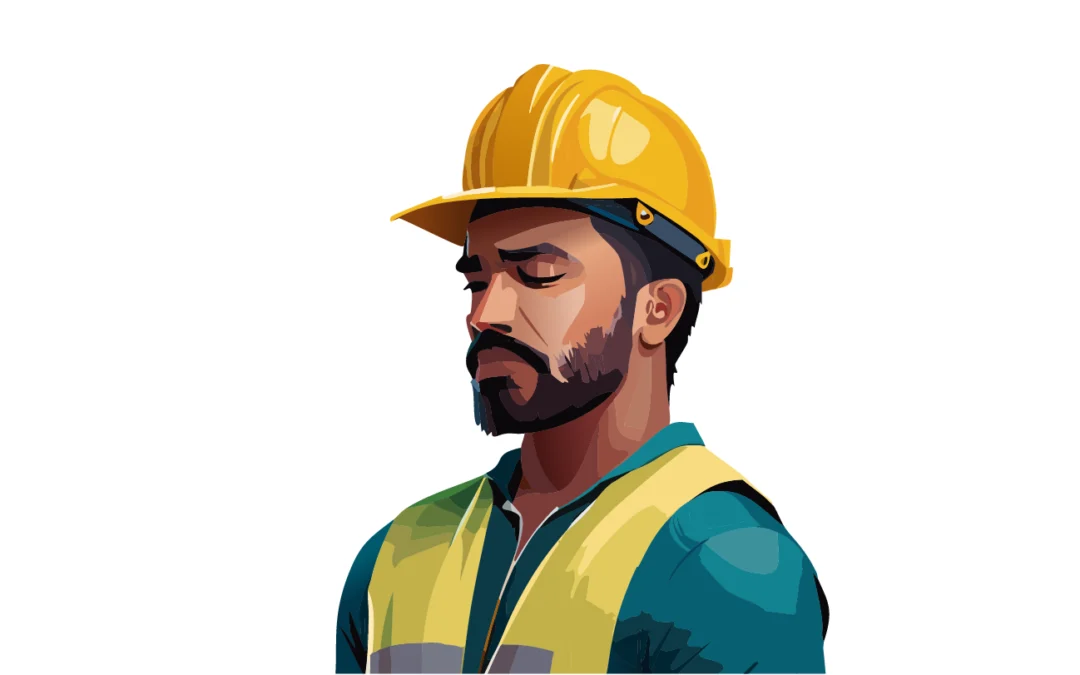In the United States, roughly 133 deaths by suicide occur each day. In other words, someone takes their own life approximately every 11 minutes. For the construction industry, this rate is 4 times higher. According to the Center for Disease Control (CDC), 53.3 out of every 100,000 construction workers die by suicide. (The average suicide rate in the U.S. is 12.93 per 100,000 individuals.) This means that each year, about 5,000 construction workers die from suicide – 5 times more than from work-related injuries. Why is this industry facing such a devastating mental health epidemic? And how can Mental Wellness Training help?
The Need for Mental Wellness Training and Awareness in Construction
At first glance, construction and suicide may seem like two topics that rarely coincide. Public perception often casts construction workers as rugged, tough and masculine. Men who wear steel-toed boots and hard hats, drive pick-up trucks and revel in risk. The reality is, this industry faces higher rates of suicide due to demographic factors and factors integral to the job:
-
-
Age & Gender:
For instance, the construction industry consists primarily of males aged 20-50, a group historically at high risk for suicide even without the added demands of construction work.
-
-
-
Veteran Status:
About 7% of the industry’s workers are also veterans who experience 1.5 times greater risk of suicide than non-veterans.
-
-
-
Substance Abuse:
An estimated 15% of construction workers in the U.S. have a substance abuse disorder (compared to 8.6% of the general population) and are 16 times more likely to die of overdose than a workplace injury. The physicality of the job and prevalence of workplace injuries can lead workers to manage pain with alcohol or prolonged marijuana, cocaine, or non-prescription opioid use.
-
-
-
Irregular Hours & Workplace Environment:
The uncertainty and instability that comes with cyclical employment paired with long or irregular work hours creates high levels of burnout. Many construction workers are also regularly exposed to heat and cold stress, as well as hazards on the job site like falls from heights; electrical hazards; heavy machinery; extensive ladder use; cramped spaces; lifting and hoisting; excavation and trenching hazards; toxic and hazardous materials; and more. These high-stress environments can increase the risk of suicide.
-
-
-
Health Insurance:
The Bureau of Labor Statistics reported that of the 20 professions that are least likely to have health insurance, 11 of them are in the construction industry. The average rate of full-time workers in the U.S. who are uninsured is 12%. In comparison, uninsured rates in the construction industry average 43.8%. Without health insurance, employees are less likely to seek out mental health services due to financial constraints. (The average cost of therapy in the U.S. for uninsured individuals ranges from $65 to $250 per session.)
-
How Mental Wellness Training Can Make a Difference
The statistics are sobering, revealing a serious need for increased mental health awareness and more importantly support networks and services within the construction industry. To combat this crisis, we must collectively prioritize the well-being of our workers. Implementing simple yet effective strategies and support can make a substantial difference to improve mental health in the workplace.
Tyfoom can help.
With Tyfoom, managers can more easily foster open dialogue and reduce stigma around mental health issues. Encouraging discussions and offering easily accessible resources for mental health support creates an environment and culture where individuals feel comfortable seeking help and know where to go. Together, we can break down barriers, raise awareness, take action and ultimately save lives. Start today by scheduling a meeting to speak with a Tyfoom training consultant.

